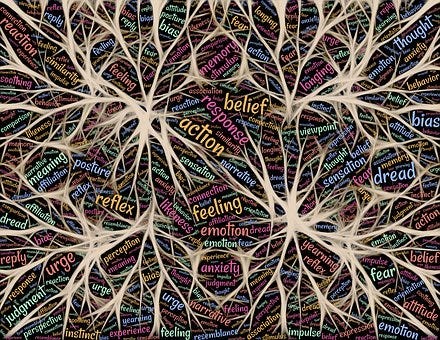

This is the first in a new series of articles. Understanding consciousness has been something of a nightmare for science and philosophy, because it seems that no one can explain how something material, the brain, is capable of producing something apparently immaterial, the phenomenon of consciousness, subjective experience. This led the Australian philosopher David Chalmers to coin the term ‘the hard problem’, as in my title. I shall be arguing that only a spiritual understanding of life can resolve the difficulty. Along the way, I’ll be using as a sounding-board a book by philosopher Philip Goff called Galileo’s Error¹, in which he wrestles with the relevant issues. The subtitle is Foundations for a New Science of Consciousness, which explains more clearly than the title what it’s all about.
Here is a brief summary of Goff’s argument. He rejects dualism, the idea that consciousness is of a fundamentally different nature from matter. He thinks that physical science is incapable of explaining consciousness, and so rejects materialism. He concludes therefore that panpsychism is philosophically the most plausible solution. He defines this as “the view that consciousness is a fundamental and ubiquitous feature of physical reality” (p113).
I agree with that statement when taken at face value but, as he goes into more detail, some problems begin to emerge. The first ones are of a philosophical and scientific nature.
Although he rejects materialism, his panpsychism is not really an alternative to it, rather a watered-down version, in effect saying that we need to expand our understanding of matter to include consciousness. He states that very clearly here: “Panpsychism… does not postulate consciousness outside of the physical world… The panpsychist places human consciousness exactly where the materialist places it: in the brain” (p115).
By adopting this position, it seems to me that he has merely moved the goalposts and created a new Hard Problem. How is consciousness a fundamental aspect of matter? Merely stating that this must surely be the case explains nothing. I understand that one of the qualities of good philosophy is that it should be explanatory powerful, and Goff believes that his version of panpsychism is that (he uses those words on p114). I assume he thinks that because panpsychism is an improvement on materialism and dualism. However, since he offers no explanation for how consciousness might be a fundamental aspect of matter, I would argue that, at least on that specific point, this version of panpsychism fails.
Good philosophy should also be internally consistent. Goff distances himself from the view “that all kinds of inanimate objects have rich conscious lives”. This leads him to the, on the face of it, contradictory position that not literally everything is conscious, even though he has defined panpsychism as “the view that consciousness is a fundamental and ubiquitous feature of physical reality”. He thinks that “the fundamental constituents of the world are conscious”, but not that “every random arrangement of conscious particles results in something that is conscious in its own right” (p113). Thus socks are not conscious, even though the subatomic particles that comprise them are. That seems somewhat internally inconsistent to me. At the very least, it would require some further elucidation.
There is another problem. According to the scientific method, a hypothesis must be either verifiable or falsifiable. Goff concedes (p115) that, in the case of panpsychism, this may be impossible. If that is so, then it could not be the foundation of the new science of consciousness that he is seeking. It would remain merely a philosophical speculation.
The last point leads to a difficulty of a different kind. Goff turns to his version of panpsychism, not because it is necessarily true, rather because it is philosophically appealing, since he perceives it to be the only way to avoid dualism. It is therefore a kind of get-out clause, a diversion from a purely philosophical discussion to his preferred worldview. As he says, “the main attraction of panpsychism is not its ability to account for the data of observation, but its ability to account for the reality of consciousness” (p115). He is therefore conceding that its appeal is theoretical, not empirical. And why is it so appealing to him? Because, like so many scientists and philosophers in modern times, Goff wants to avoid at all costs any appeal to ‘magical’, i.e. spiritual/immaterial, explanations. He says, “we must somehow find a way of making consciousness… the business of science” (p23).
Why must we? Perhaps the true nature of consciousness is beyond the reach of science, or at least beyond science as it is currently conceived. That is my assumption, and will be the theme of this series of articles. An important question will be: Goff’s panpsychism is an obvious improvement on strict materialism, but does it go far enough?
Since he considers the concept of an immaterial mind to be a ‘magical’ (his word) explanation, and therefore rejects it on a priori grounds, it’s worth considering whether his arguments are reasonable. A discussion of dualism will therefore be the subject of the next article.

Footnote:
1. Rider, 2019